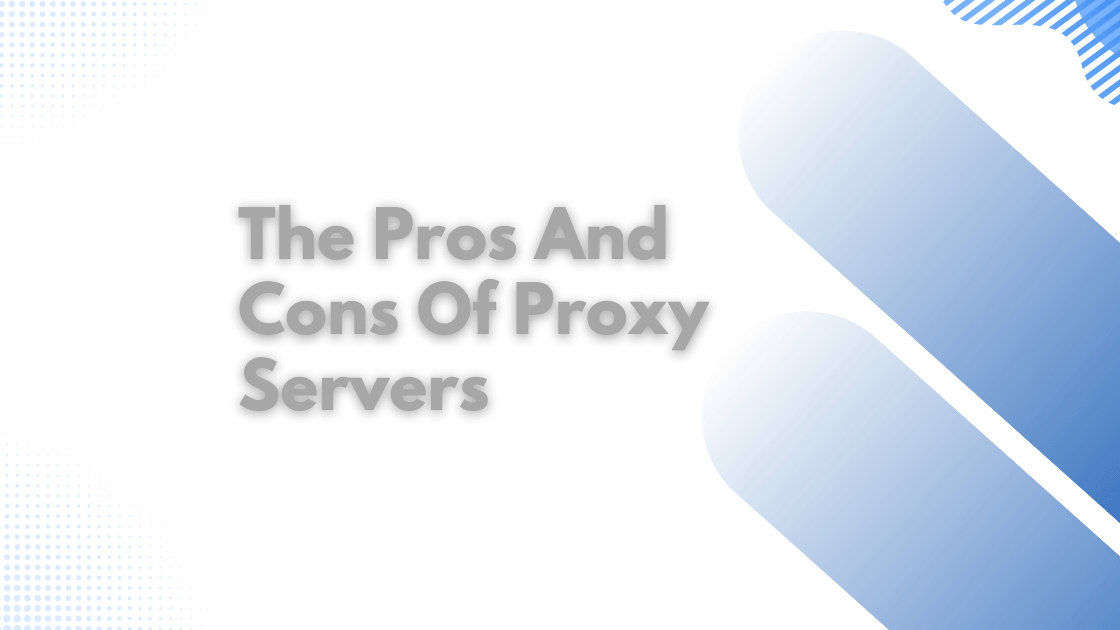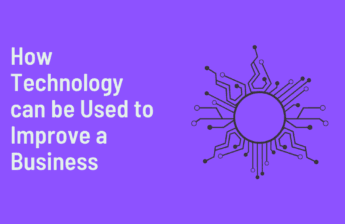In simple terms, a proxy is a link between a server and the clients. It’s software, a computer, or an application that connects a device to an extensive network, such as the Internet. A proxy can be used as a gateway between the Internet and a group of computers. Clients can get across information kept in different servers through the proxy. It’s also used for other purposes.
However, it’s important to note that the use of proxy comes with its own advantages and disadvantages. Read on to learn more about them.
Pros Proxy Servers
- Could Be Used For Hiding An IP Address: A proxy server helps provide anonymity to the user. How does this work? A proxy server could help conceal the user’s IP address so that the server controlling the target website is unable to trace the user’s physical location.
In cases where an organization bars its individuals from accessing a particular website, using a proxy server can help bypass the restrictions without leaving any footprint behind or identifying the user’s IP address. The use of reliable but cheap proxies would enable users to easily access confidential information on the Internet.
- Helps Add Extra Protection: Proxy servers can help provide an extra layer of protection by restricting access to sites and web pages that may contain malware, viruses, or phishing links. They can also be used for individuals using a network to bar them from entering specific sites that could contain malicious codes or sensitive information. Organizations will find proxies helpful in preventing their members’ access to areas that could be dangerous to the network or reduce their efficiency.
You can check out reviews on Bright Data and other proxies to know which one best suits your needs and requirements.
- Secure: Surfing the net without a proxy server means making yourself vulnerable to hackers. Some people can use your IP address to dig into your personal information. Sensitive details, like credit information, can be accessed, causing online theft.
This is why getting protection while navigating the Internet is crucial. Proxy servers improve security. This is because external servers would be confused about which server is your IP; hence, you’ll be well-protected. You can also use some proxy servers as firewalls to add extra protection against hackers.
- Page Loading Gets Faster: A significant role proxy servers play is to cache data from accessed sites. If you ever desire to return to these pages, the server will direct you faster than usual. Therefore, you get to enjoy a faster loading speed for the recently visited site. As long as you’ve been to the site, the proxy server helps to cache it, and you enjoy the rate of redirecting.
Cons Of Proxy Servers
- Personal Data Theft: As earlier said, proxy servers usually keep the memory of recently loaded pages. This could retain sensitive information, such as passwords and usernames. This would be dangerous until whoever is associated with the proxy becomes careless with the stored info.
Hackers or persons with evil intentions could access the information and use it for purposes that may damage your online identity. You, therefore, need to use a trusted Internet service provider to buy proxy servers.
- Your Connection Might Not Be Encrypted: Even though proxy servers provide anonymity, many don’t encrypt data connections. Most service providers use SSL certificates to encrypt their data. The security provided by this may not be enough as hackers can use SSL strippings to decrypt such connections. Therefore, you must ensure that your proxy server encrypts all your connections before investing in it.
- Incompatibility: Proxy servers run their systems independently, based on their own configurations. The use of proxy servers is utterly beneficial. However, there could be problems if the proxy server isn’t compatible with your local service network.
The configuration of the proxy server you want to use has to fit your local network server. Incompatibility means that you may not be able to browse the Internet or access some sites. Therefore, you must purchase the services of a proxy that fits or is compatible with your Internet service provider.
- Cost: Setting up and maintaining a proxy server may not be as cheap as it may seem. It might be easier for large organizations to cover the expenses. This may not be the case for small businesses. There are a lot of costs, including installation and maintenance, that come with using a proxy server.
Conclusion
Like every other system, there are pros and cons to using proxy servers. However, it can be seen here that the advantages they offer greatly outweigh the disadvantages. But, remember that you’ll only be able to enjoy the services of a proxy server if you purchase from a trusted and reliable seller.







